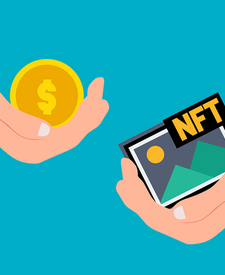5 Uncommon Ways to Recession-Proof Your Life
Early this year, the UK avoided a technical recession narrowly. The inflation rate dropped to 2.6% in March 2025, from 2.8% in February and 3% in January 2025. Despite this steady decline, the cost of essentials such as food and energy is still higher compared to pre-pandemic times. With nearly 50% of Brits dipping into their savings to cover everyday expenses, now is the time to start recession-proofing your life. Whether you are already feeling the pinch or want to brace yourself for when things get tighter, this read shares 5 simple, unique yet effective ways to do so.
1. Monetise your home utilities
It's easy to tell people to diversify their income streams to be better prepared for a recession. However, getting another job as a source of income in the current job market is difficult for most people. So what else can you do to earn some extra money? This is where utilising what you already have comes in handy.
- Do you have a driveway or parking space at home? You can rent it out and collect hourly or daily rates. This can be effectively done if you live near a hospital, university, stadium, city centre, or train station. Several platforms connect homeowners willing to rent out their parking spaces to potential clients.
- Do you have a dry loft or empty basement? You could rent this unused space out as a short-term storage space.
- Do you have solar panels? If yes, you can look into the Smart Export Guarantee (SEG) scheme which will pay you to supply excess electricity back to the National Grid.
2. Form a "Money Circle" with trusted friends
This strategy is borrowed from the popular rotating club savings idea. In this case, you will need a group of trusted friends or family members to help build each other’s financial resilience. To create the money circle, there should be a simple written agreement for everyone involved to abide by, and everyone should contribute the same fixed amount of money to the pot weekly, biweekly, or monthly.
Everyone will then receive this contributed amount on a rotating basis. Although the primary reason for the money circle would be for everyone to receive a lump sum amount interest-free without having to borrow from a bank or payday lender, this community can be used for other benefits. This can include bulk-buying groceries to save on cost or taking turns to handle services such as pet-sitting, babysitting, and tutoring to avoid paying for them out of pocket.
3. Reinvent entertainment
With disposable income decreasing, hobbies and entertainment are usually first on the chopping block. However, finding time and activities for unwinding is important for your mental health. Therefore, instead of taking it all away, it is better to reinvent your entertainment activities. Check out your nearest library for access to free movies and audiobooks. Your local community centre may also offer free fitness classes and workshops that you never knew about.
You can also opt to play free games instead on your phone and go for “pay what you can” events. This type of online entertainment does not have to result in big spends; if you choose to look at it as a creative challenge instead, you will definitely find activities that work for you and your limited budget.
4. Reduce housing costs
Housing is an essential expense; however, you can apply measures to reduce your costs. First, if you are a homeowner, it is important to ensure you are in the council tax band. Ensure you're not overpaying your taxes. Improving your energy efficiency can significantly reduce your house costs. Therefore, switch over to LED bulbs, smart thermostats, and draught excluders.
If you have an unused room in your home, you can rent it out to generate more income to cover house expenses during this possible recession. Remortgaging your house for better rates is an idea you can also explore. Additionally, lenders are aware of the current challenging economic climate and therefore may offer flexible terms or interest-only options. Be proactive and ask your lender what options are available to cushion you.
5. Negotiate everything
There will always be power in asking. You will be surprised to know that a good number of service providers know there is always room to haggle, and they have already established a space that allows for it. Therefore, now more than ever is the time to confidently:
- Ask for fee waivers on overdrafts or late charges to your credit card.
- Negotiate during car and home insurance renewals.
- Request lower APRs on your credit card if you've had it a while and kept up with payments.
- Ask about loyalty discounts in stores you frequent.
- Enquire for package deals in services you frequently get from the same business.
Recession-proofing your life doesn't always mean living a lesser quality of life than you are used to. Sometimes, it just means being smarter about how to afford the same quality of life. From monetising your home utilities to always looking for an opportunity to negotiate a cost, recession-proofing your life is a mindset shift that will help you navigate through the anticipated difficult economic times much better.
























